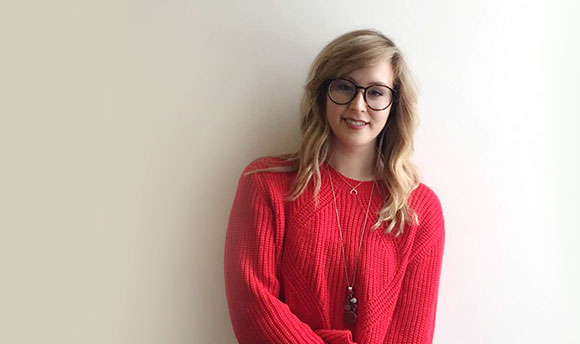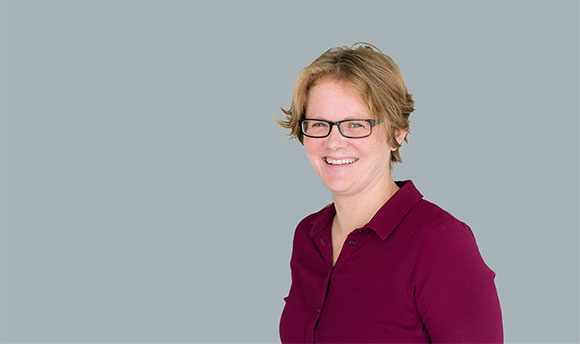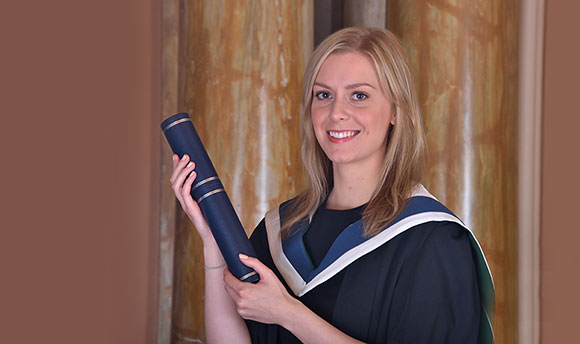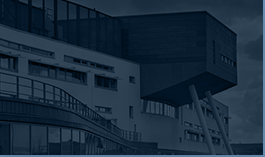NB Application to this course is now closed. Application for entry in September 2026 will open at the start of October 2025.
Diagnostic Radiography (Pre-Registration) - MSc
If you have a degree and are looking for a career change into a caring profession with excellent employment rates, why not consider becoming a diagnostic radiographer?
This MSc in Diagnostic Radiography (Pre-Registration) course will enable graduates to refocus their career in only two years and on completion you will be able to apply for registration with the Health & Care Professions Council (HCPC) to work as a diagnostic radiographer.
You will develop the analytical, theoretical and practical skills you learned on your undergraduate degree and focus on the professional and clinical elements required to be a successful diagnostic radiographer. The course includes three blocks of practice placement that will build on course modules providing theoretical knowledge, ensuring you are well-equipped to enter into this caring profession.
Please note that this course is going through a routine re-validation process over the next year and that any changes to course content arising will be reflected on this web page.
Why QMU?
- Our reputation: Diagnostic radiography education at QMU is well established, extremely popular, and well respected throughout the profession. Our graduates are highly praised by employers.
- Employability: This course has an excellent graduate employment rate and all graduates since the course began have found employment within the profession.
- Placements give you the optimum experience: The course provides the luxury of a variety of clinical placements, producing flexible graduates.
- Support and opportunity: Small class sizes ensure high academic support and a unique clinical experience.
- Professional accreditation/registration: Successful completion will enable application for registration with the Health & Care Professions Council (HCPC), a requirement for employment in the NHS.
What does a diagnostic radiographer do?
Diagnostic radiographers provide an imaging service within a hospital setting including accident and emergency, outpatients, operating theatres and wards. X-rays are an imaging technique used by diagnostic radiographers to visualise injuries or disease, or monitor changes inside the body. Diagnostic radiographers also carry out a much wider range of procedures, which may include cross-sectional imaging techniques such as computed tomography (CT), magnetic resonance imaging (MRI), ultrasound and radionuclide imaging (RNI).
As a student on this course, you will complete a number of modules that integrate anatomy, physiology, radio diagnostic imaging, physics and equipment, enabling you to understand the theory of diagnostic imaging. This theory will be put into practice in workshops in a clinical laboratory enabling you to experience the role of a diagnostic radiographer, including communication with teams and with service users, before placement blocks. You will also be required to complete a dissertation.
Structure and exit awards
You must complete the full MSc (340 credits) to be eligible to register with the Health & Care Professions Council and to work as a Diagnostic Radiographer. Single module study is not available.
Teaching, learning and assessment
Academic study is learner-centered with the analysis and synthesis of knowledge being of paramount importance. You will be expected to take overall responsibility for your learning. Teaching methods include keynote lectures, clinical workshops and tutorials, student-led seminars, group discussions, clinical observation and practice. Directed learning materials will be delivered via a virtual learning environment (the Hub) and comprise reading, self-assessment quizzes, workbooks, tutorial questions with answers and narrated lectures.
Clinical skills will be developed in work placements in radiology departments in hospitals in central Scotland.
A variety of assessment methods will be used, including online examinations, Objective Structured Clinical Examinations (OSCEs), self-appraisal, course work, ePortfolio, viva voce examinations and clinical assessment.
Placements
There are 18 weeks of placement in Year One and 22 weeks in Year Two, including an elective placement. QMU will allocate students with a placement across central Scotland, for example, the Lothians, Fife, Forth Valley, Ayrshire, Tayside and the Borders. However, for four of these weeks you will be on elective placement, which can be taken anywhere in the world. Students choose, arrange and fund this placement block but QMU can assist with any documentation that may be required.
Specialist facilities
QMU offers a variety of modern spaces for use by both our Master of Radiography: Diagnostic (MRad) and MSc Diagnostic Radiography (Pre-Registration) courses. We have a dedicated Diagnostic Radiography Room to practice technical and professional skills, with fully functioning x-ray equipment. Our diagnostic radiography students also utilise QMU's Clinical Simulation Suite, and Physiotherapy and Podiatry Skills Rooms which are equipped to simulate the real-life placement environment. Students have access to numerous anatomy models which are incorporated into their learning during practical sessions and can be used during self-directed study sessions.
Watch the video below to see all the specialist teaching and learning facilities at QMU.
Teaching hours and attendance
Each module that you study on will require you to attend classes and carry out independent work. The pattern of attendance at QMU will depend on the modules you are studying.
Attendance at professional modules is monitored to ensure safety to work in the clinical environment. In clinical placements the normal hours of a radiographer (ie full time, Monday to Sunday) will be followed.
Class sizes
The cohort is normally 15-20 students to ensure that the clinical experience can be tailored to individual needs. Some academic modules have larger class sizes as students engage with other allied health professionals.
Teaching staff
You can read more about the teaching staff on this course at the bottom of this page. Please note that teaching staff is subject to change.
- Introduction to Diagnostic Imaging (40 credits): This module aims to develop your knowledge base with regard to the relationships between the structures and functions of the body, imaging procedures and the principles of radiodiagnostic radiation safety.
- Fundamentals of Diagnostic Imaging (20 credits): This module aims to develop your knowledge and skills in selecting radiographic techniques in a variety of imaging modalities and patient conditions for safe and effective operation.
- Specialist Imaging and Advanced Diagnostic Practice (40 credits): This module will provide you with detailed knowledge and a critical understanding of the performance of specialist imaging modalities and procedures with regard to advanced practice, clinical governance and patient pathways.
- Cross Sectional Imaging Science (20 credits): This module aims to develop the ability to critically evaluate concepts and scientific principles of specialist equipment and associated cross-sectional anatomy, pathology and image quality related to Computed Tomography and Magnetic Resonance Imaging.
- Preliminary Clinical Evaluation (20 credits): This module will develop the critical analytical skills and competence required for clinical evaluation of musculoskeletal trauma images.
- Preparing for Practice as an Allied Health Professional (20 credits): This module aims to explore factors that shape and influence the provision of health and social care by the allied health professions.
- Leadership and Enterprise in Health Practice (20 credits): To critically evaluate the concepts of leadership and leading change, intra/entrepreneurship and innovation within the health and social care sector and explore opportunities for leading and developing enterprising ideas for health and wellbeing.
- Understanding and Appraising the Evidence for Practice (20 credits): The aim of the module is to support you to develop an in-depth understanding of approaches to research, to apply knowledge in order to critically appraise evidence and to form reasoned conclusions and to develop the research skills and knowledge necessary to undertake an independent research project.
- Applying skills of Critical Enquiry (project) (20 credits): The module aims to enable you to develop and apply the skills of research and enquiry to produce a small-scale study which demands a professional approach, academic rigour, independence and self-direction.
- Diagnostic Radiography Practice-based Learning: Placement 1 (60 credits): This module aims to enable successful integration into the multidisciplinary team and development of a holistic, safe and effective approach to conventional diagnostic imaging.
- Diagnostic Radiography Practice-based Learning: Placement 2 (60 credits): This module aims to develop further the knowledge, skills and professional attributes required of an entry level diagnostic radiographer.
Diagnostic radiography is a fast-moving and continually changing profession, and long-term career prospects may include specialisation, management, research and teaching. Following graduation and registration with the HCPC you can work as a registered diagnostic radiographer within the NHS.
Entry requirements
Second class honours degree or above in any discipline. It is essential that all applicants have some shadowing experience in a clinical environment. This course is not suitable for those already holding a diagnostic radiography or medical qualification. Shortlisted applicants will be invited for an interview.
International students: You will be required to provide evidence of English language competence at no less than IELTS 7.0 with no individual component score less than 6.5.
Other requirements
A satisfactory criminal records check from the Protection of Vulnerable Groups (PVG) Scheme, an occupational health check and personal indemnity insurance (normally through membership of the professional body) are required.
Other information
- The cost of professional indemnity insurance is the responsibility of the student. For more information on this, visit the PG 2025 fees page on our website.
- The additional costs associated with placement travel and accommodation are the responsibility of the student. Students who receive SAAS funding may be able to claim for some of these expenses to be reimbursed.
- Uniform, PVG and badge costs – please see PG 2025 fees page on our website.
Disability/health conditions
If you have a disability, long-term physical or mental health condition, or learning disability, it should not stand in the way of your studying at QMU. However, if you are not sure whether your disability might be a barrier in your studies or in relation to the professional standards, please contact the disability service who will be able to have a conversation with you about reasonable adjustments and supports available to you.
Applying for this course
The course is now closed for entry in September 2025. Application for September 2026 will open at the start of October 2026.
Application deadline
The course is now closed for entry in September 2025. Application for September 2026 will open at the start of October 2026.
Contact Lis Taylor (Programme Leader) or Contact Admissions
- The delivery of this course is subject to the terms and conditions set out in our 2025/26 Entry - Terms and Conditions (Postgraduate).
- The information on this page is correct at the time of posting (October 2024) but is subject to change. In the event that modules change, QMU will seek to use reasonable endeavours to ensure that there is no detrimental impact on students. Please keep an eye on this page for updates.
What are the difference between diagnostic and therapeutic radiography?
Become your best you: study at QMU
Course Overview
Useful Links
Join us at one of our Postgraduate Open Events
Find out about online and in-person opportunities to meet with us to find out more about our postgraduate courses and study at QMU.
Postgraduate Open Events - More Info and Bookings








